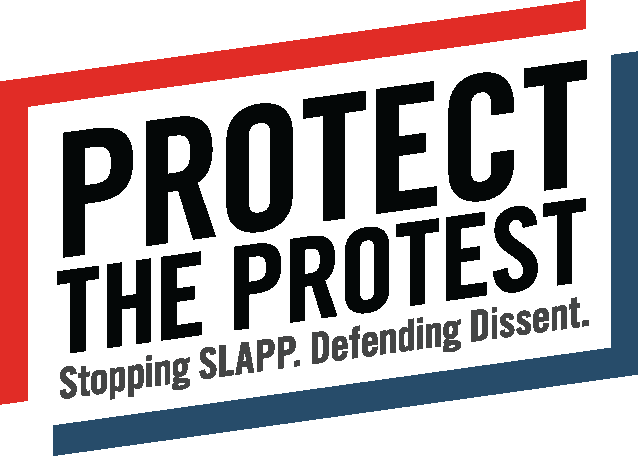Representatives Raskin and Kiley and Senator Wyden Introduce Bill to Protect Free Speech
Landmark Free Speech Protection Act is introduced to protect free speech from baseless legal attacks and combat Strategic Lawsuits Against Public Participation
For Immediate Release:
December 5, 2024
Media contact:
Caitlin Howard, Protect the Protest, caitlin@breachcollective.org, 503.314.7128
Washington, D.C. — Today, U.S. Representative Jamie Raskin (D-MD), Representative Kevin Kiley (R-CA), and Senator Ron Wyden (D-OR) introduced the Free Speech Protection Act of 2024. The landmark bill seeks to protect free speech and uphold the integrity of the U.S. court system.
SLAPPs allow powerful corporations and individuals to use the courts to sue journalists, advocates, and everyday citizens who speak out on matters of public concern. The goal of these baseless lawsuits is not to win on their merits, but to use the courts to bully and bankrupt their targets into silence. These suits are a direct attack on First Amendment rights. SLAPPs impact people from all walks of life, from journalists and bloggers, to teachers and activists, to survivors of domestic abuse.
To date, 33 states and the District of Columbia have passed anti-SLAPP laws, most with overwhelming bipartisan support, but there is no federal SLAPP statute that provides consistent protection across federal courts. Legislation is needed at the federal level to prevent SLAPPs, dismiss them quickly from our courts, penalize those who use them, and guarantee First Amendment protections to all Americans, regardless of where they live.
Members of the Protect the Protest coalition strongly support the bill and urge Congress to pass this critical legislation.
David McKean, Executive Director of the International Corporate Accountability Roundtable (ICAR), a member of the Protect the Protest coalition, said:
“To succeed in addressing climate change, racial injustice, and other priority issues, we need to defend the ability of everyday people—the people on the frontlines of these issues—to speak truth to power without fear of retaliation. We also need to protect the ability of journalists and civil society organizations to hold the powerful to account in order to preserve our democracy. Our goal for this legislation is to prevent powerful actors from weaponizing the federal courts to silence their critics. To achieve this goal, we are working with free speech proponents across the political spectrum, who have a shared interest in legislation that protects free speech as a bedrock principle in the United States.”
Dr. Chelsea Polis, a reproductive health epidemiologist SLAPP’d for speaking out about her scientific and regulatory concerns regarding a digital fertility tracker marketed by Valley Electronics, said:
“As a scientist who faced a lawsuit after speaking out to protect public health, I am gravely concerned about the chilling effect SLAPP suits can have on evidence-based dialogue on matters of public interest. When scientists and other experts are silenced due to fear of costly, stressful, frivolous lawsuits, everybody loses. Federal anti-SLAPP legislation will help ensure that those with deep pockets cannot interfere with our First Amendment rights to speak truth to power, regardless of what state we live in.”
Kirk Herbertson, U.S. Director of Advocacy and Campaigns at EarthRights International and member of Protect the Protest, said:
“The Free Speech Protection Act will help to stop powerful corporations and individuals from weaponizing the courts to trample on the First Amendment. Democracy depends on our ability to speak up, demand respect for our rights, and hold the powerful accountable. This Act does just that, protecting the First Amendment rights of people across the political spectrum.”
Bridget Mahoney, a former news anchor turned activist and advocate, and her daughter, Julie Boak, were hit with a SLAPP suit for publicly sharing their journey through domestic violence and child abuse. She said:
“Until I experienced it firsthand, I didn't realize how fragile the right of freedom of speech could be. I was no match for the deep pockets of my ex- husband who sued us for defamation. Having already spent over $100,000 and running out of funding, on the day of trial, I made the gut-wrenching decision to settle the lawsuit and can no longer speak within a 100-mile radius of where my abuser resides. The legal playing field needs to be leveled. Without an anti-SLAPP law to protect against meritless lawsuits, free speech is being chilled, silencing truth tellers across our nation.”
Protect the Protest is a coalition of nonprofits, NGOs, and legal organizations joining together to defend the rights of protesters and dissenters across the country.
###
